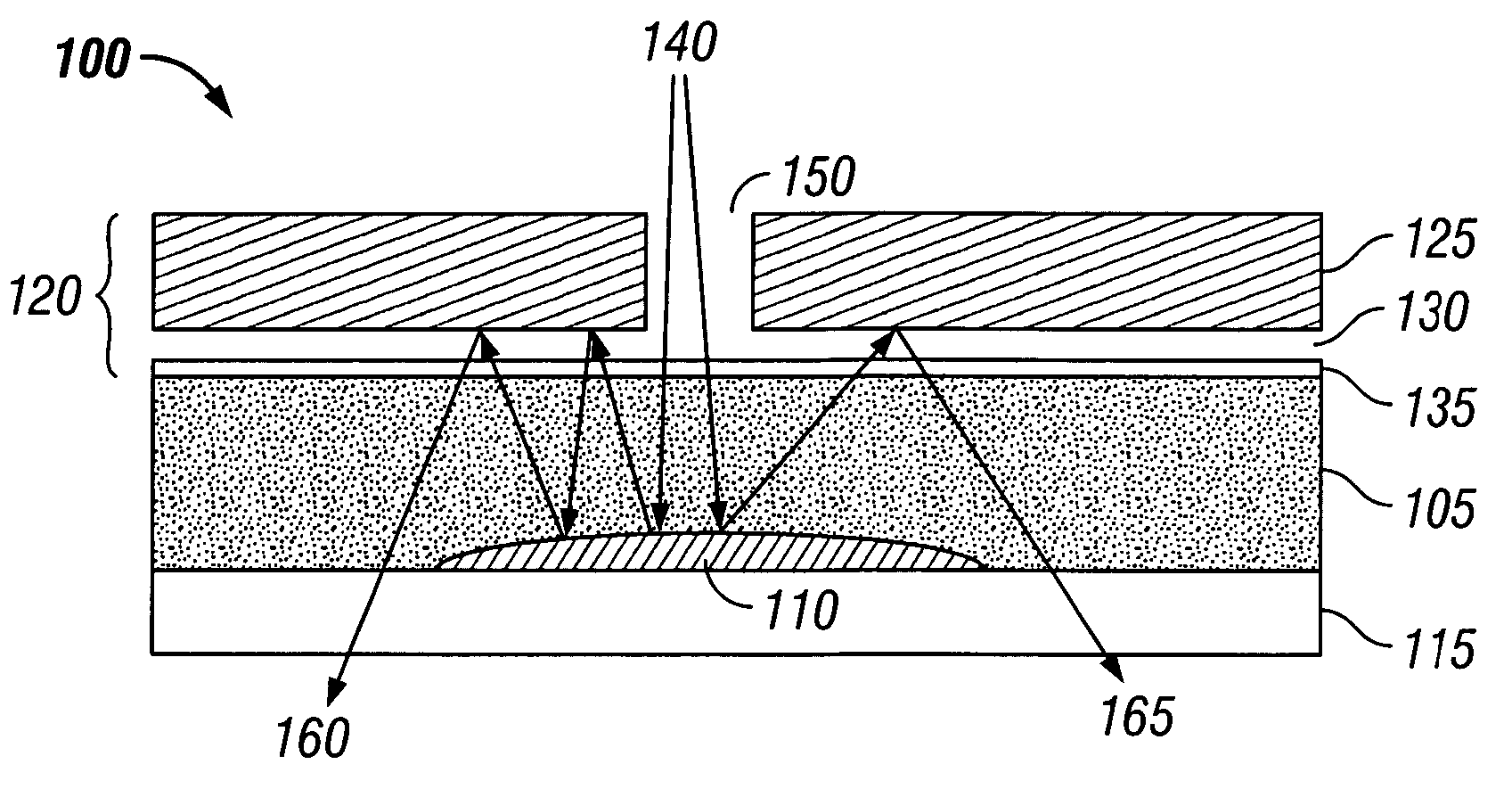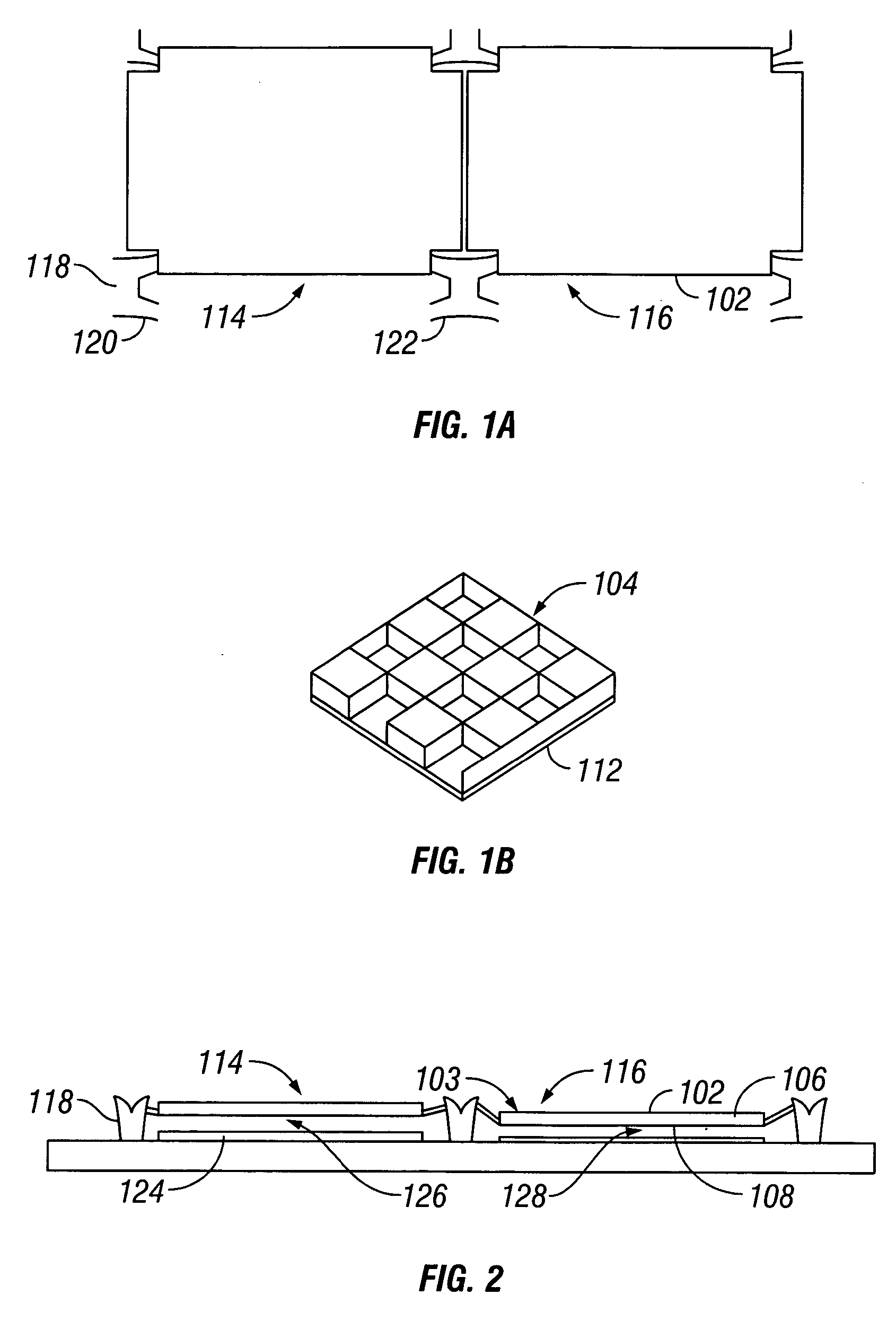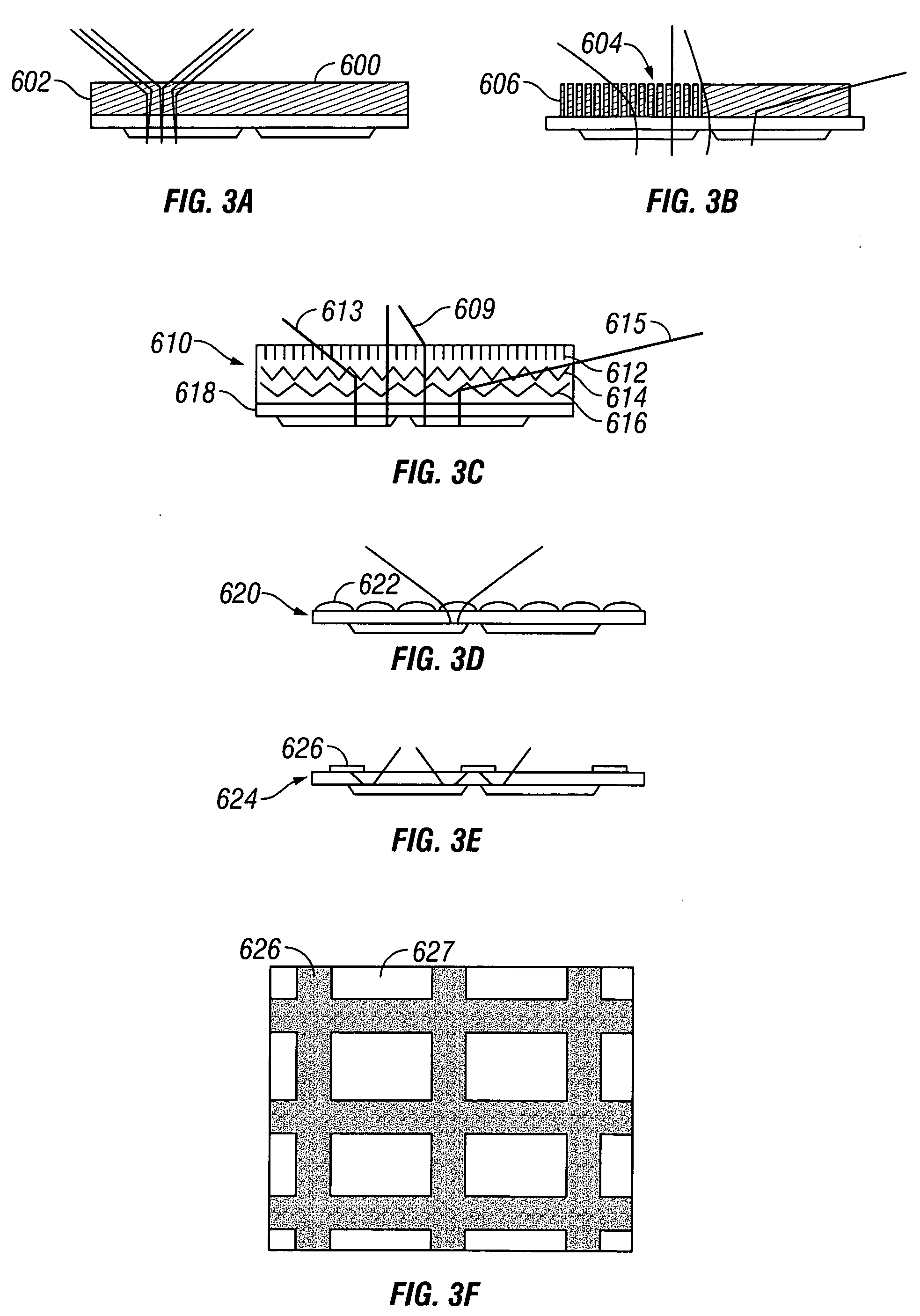Spatial light modulator with integrated optical compensation structure
a technology of optical compensation and spatial light, applied in optics, instruments, optical elements, etc., can solve the problems of increasing the difficulty of fabricating them by current manufacturing process flow, and achieve the effect of improving the difficulty of forming them
- Summary
- Abstract
- Description
- Claims
- Application Information
AI Technical Summary
Benefits of technology
Problems solved by technology
Method used
Image
Examples
Embodiment Construction
[0029] A preferred embodiment is an interferometric modulator that includes at least one integrated optical compensation structure. In some configurations, the optical compensation structure is arranged between the substrate and the light-modulating elements of the interferometric modulator. In other configurations, the light-modulating elements are arranged between the substrate and the optical compensation structure.
[0030] Various examples of interferometric modulators are described in U.S. Patent Publication No. 2002 / 0126364 A1. FIGS. 1 and 2 illustrate some characteristics of a typical interferometric modulator (see FIGS. 1 and 2 of U.S. Patent Publication No. 2002 / 0126364 A1and the corresponding text). Referring to FIGS. 1A and 1B, two interferometric modulator structures 114 and 116 each include a secondary mirror 102 with a corrugated pattern 104 etched into its upper (outer) surface 103, using any of a variety of known techniques. The corrugation does not extend through the...
PUM
 Login to View More
Login to View More Abstract
Description
Claims
Application Information
 Login to View More
Login to View More - R&D
- Intellectual Property
- Life Sciences
- Materials
- Tech Scout
- Unparalleled Data Quality
- Higher Quality Content
- 60% Fewer Hallucinations
Browse by: Latest US Patents, China's latest patents, Technical Efficacy Thesaurus, Application Domain, Technology Topic, Popular Technical Reports.
© 2025 PatSnap. All rights reserved.Legal|Privacy policy|Modern Slavery Act Transparency Statement|Sitemap|About US| Contact US: help@patsnap.com



